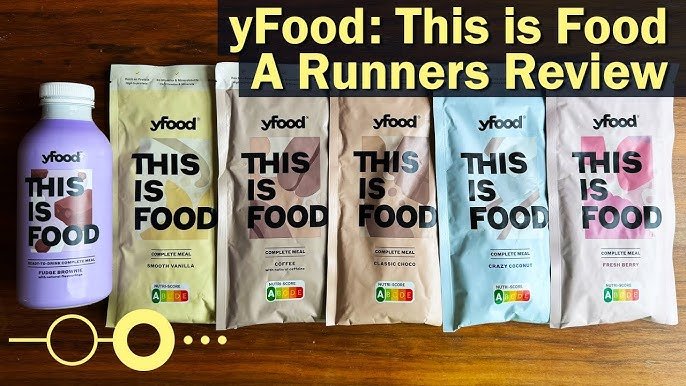This Is Food: A Celebration of Culinary Wonders

this is food Food is more than just a means of survival; it’s a universal language, a celebration of culture, and a source of comfort and joy. Whether it’s a carefully crafted gourmet meal or a simple homemade dish, this is food connects us to our traditions, our environment, and each other. Let’s dive deep into the world of food, its meaning, and the many ways it influences our lives.
What Is this is food Beyond Nourishment?
Food is, at its core, fuel for the body. It provides the essential nutrients we need to function. But in truth, this is food goes far beyond its biological necessity. It represents culture, creativity, and connection. When we sit down for a meal, it’s not just about calories—it’s about experiences.
Food as Culture
Every culture has its own unique relationship with this is food. From the spicy curries of India to the delicate sushi of Japan, dishes tell stories of a community’s history, geography, and traditions. For example, Italy’s pasta and pizza reflect its agricultural bounty and Mediterranean roots, while Mexico’s vibrant tacos and tamales speak of a rich blend of Indigenous and Spanish influences.
The rituals surrounding this is food—whether it’s a family gathering for Thanksgiving or a traditional tea ceremony in China—also reinforce bonds. this is food becomes a way to honor ancestors, celebrate milestones, or simply enjoy the moment.
Food as Comfort

For many, this is foodis synonymous with comfort. A steaming bowl of chicken soup when you’re sick, a slice of cake on your birthday, or a cup of hot cocoa on a chilly evening—they’re not just meals; they’re emotional lifelines. Comfort this is food=have a way of anchoring us, evoking memories of home and love.
The Art of Preparing this is food: Where Science Meets Creativity
Cooking is often called an art, but it’s also a science. The perfect dish requires an understanding of ingredients, techniques, and balance. At the same time, it leaves room for creativity, experimentation, and personal flair.
The Science of Cooking
From understanding how yeast makes bread rise to the chemical reactions behind caramelization, cooking is deeply rooted in science. Every ingredient behaves in a particular way under heat, cold, or pressure. For instance, knowing how proteins denature is crucial when searing steak to perfection, while understanding emulsification helps create silky sauces like hollandaise.
Science also plays a role in nutrition. Cooking methods can affect how many nutrients are retained in vegetables or how easily our bodies digest food. Mastering these elements allows cooks to create meals that are both delicious and healthful.
The Joy of Creativity
While science lays the foundation, creativity brings food to life. No two chefs will prepare the same dish in exactly the same way. Even a simple recipe for spaghetti can be transformed with a personal twist—adding a splash of wine to the sauce, a sprinkle of fresh herbs, or a dash of spice.
Creative cooking also involves pairing unexpected flavors, such as sweet and savory, or experimenting with new cuisines. It’s about breaking the rules, trying new ingredients, and embracing the occasional failure because every mistake is a step toward innovation.
The Role of Food in Health and Well-Being
Food isn’t just a source of pleasure; it’s a cornerstone of our health. What we eat has a profound impact on how we feel, look, and function.
Nutrition and Balance
A well-balanced diet provides the body with essential nutrients—carbohydrates, proteins, fats, vitamins, and minerals. Each plays a unique role: carbohydrates give energy, proteins repair tissues, and vitamins boost immunity. Eating a rainbow of fruits and vegetables ensures we get a variety of nutrients.
However, balance doesn’t mean deprivation. Indulging in occasional treats is part of a healthy relationship with food. The key is moderation, not restriction.
Food and Mental Health
Did you know that food can affect your mood? Certain nutrients, like omega-3 fatty acids, magnesium, and tryptophan, are linked to better mental health. For example, fatty fish, nuts, and seeds can help reduce anxiety, while dark chocolate and bananas can boost serotonin levels, making you feel happier.
On the flip side, highly processed foods, rich in sugars and unhealthy fats, can lead to energy crashes and mood swings. Building a diet focused on whole, nutrient-dense foods can improve not just physical but mental well-being.
Food as a Sustainable Choice: Eating with the Planet in Mind
In today’s world, what we eat also has implications for the environment. Choosing sustainable food practices can make a significant difference in preserving our planet.
Supporting Local and Seasonal Foods
Buying local not only supports farmers but also reduces the carbon footprint associated with transporting food over long distances. Seasonal foods are fresher, tastier, and require fewer resources to grow, making them a win-win for both you and the environment.
Reducing Food Waste
Globally, a staggering amount of food goes to waste. Simple habits like meal planning, using leftovers creatively, and composting scraps can help reduce this problem. For instance, overripe bananas can become bread, and vegetable peels can be transformed into flavorful broths.
Exploring Plant-Based Options
Incorporating more plant-based meals is another way to promote sustainability. While you don’t have to give up meat entirely, even small changes, like participating in “Meatless Mondays,” can have a positive impact. Plant-based diets are often lighter on resources and contribute to lower greenhouse gas emissions.
The Universal Joy of Sharing Food
Perhaps the most beautiful thing about food is its ability to bring people together. Sharing a meal fosters connection, whether it’s with family, friends, or strangers.
Food and Social Bonds
There’s something magical about gathering around a table. The act of sharing dishes creates moments of laughter, conversation, and understanding. Potlucks, picnics, and dinner parties all highlight how food can bridge differences and build relationships.
Celebrating Through Food
Every culture celebrates with food. Weddings, festivals, and holidays often revolve around feasting. Think of a Christmas dinner, a Diwali feast, or a Ramadan iftar—they’re not just meals; they’re traditions that bring people closer.
Conclusion: Food Is Life, Love, and Everything in Between
Food isn’t just about eating; it’s about living. It’s a reminder of where we come from, a source of comfort when times are tough, and a gateway to new adventures. Whether you’re savoring a home-cooked meal or exploring a street food market halfway around the world, food has a way of making life richer.
So, next time you sit down for a meal, take a moment to appreciate it. This is food—a simple yet profound part of our lives that nourishes not just our bodies but also our souls.



